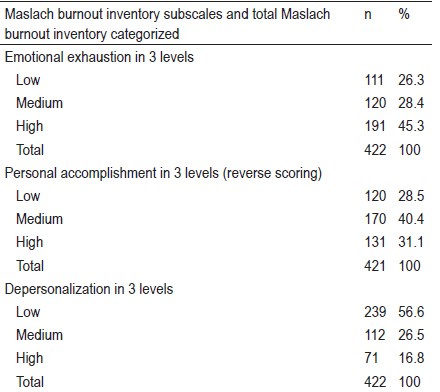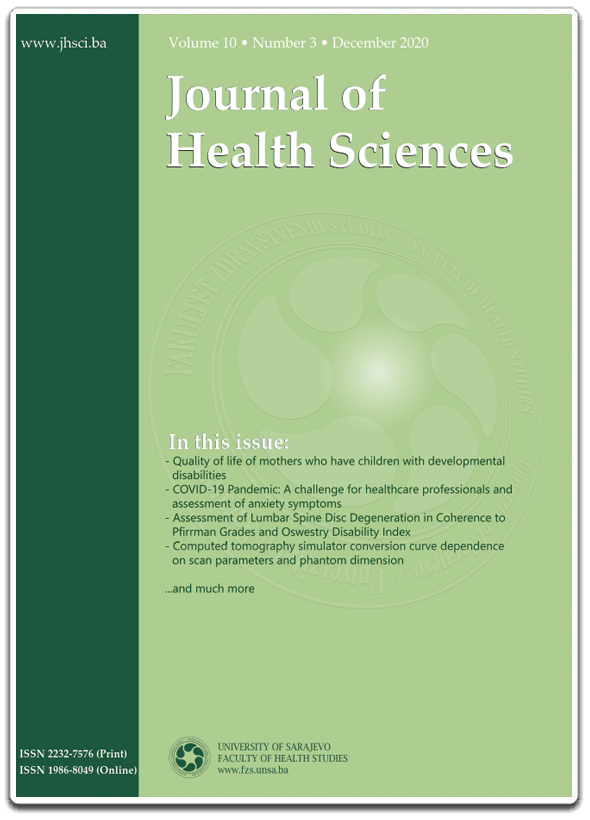Differences in Burnout Aspects in Croatian Nursing Students – A Cross-Sectional Study
DOI:
https://doi.org/10.17532/jhsci.2023.2234Keywords:
Burnout syndrome, nursing students, undergraduate studyAbstract
Introduction: Burnout syndrome is a growing concern among nursing students, potentially impacting their academic success and future professional performance. This study aimed to explore the prevalence of burnout syndrome in Croatian nursing students and examine the associations between burnout and demographic features (age, gender, year of study, part-time or full-time study).
Methods: A quantitative cross-sectional study was conducted with 423 nursing students from the University of Applied Health Sciences, Zagreb, and the Faculty of Health Sciences, Rijeka. The Maslach Burnout Inventory (MBI); MBI human services survey was used to assess burnout levels.
Results: Nursing students at the Faculty of Health Sciences, Rijeka, experienced higher burnout levels than those at the University of Applied Health Sciences, Zagreb (χ2 = 10.214, ss = 2, p = 0.006). Significant associations were found between burnout levels and age, gender, year of study, and enrolment status. Specifically, younger students, female students, and full-time students reported higher levels of emotional exhaustion (EE). 2nd-year students reported lower EE than their first and 3rd-year peers.
Conclusions: This study underscores the importance of recognizing and addressing the unique needs and stressors faced by different subgroups of nursing students. Tailored interventions and support systems are essential for alleviating burnout and promoting well-being in nursing students. Further research, including longitudinal studies, is required to better understand burnout progression and to inform the development of effective strategies for reducing burnout in nursing education.
Downloads

Downloads
Published
License
Copyright (c) 2023 Adriano Friganović, Snježana Čukljek, Sandra Bošković, Biljana Kurtović, Irena Kovačević, Marija Spevan, Josip Brusić, Kristian Civka

This work is licensed under a Creative Commons Attribution 4.0 International License.










